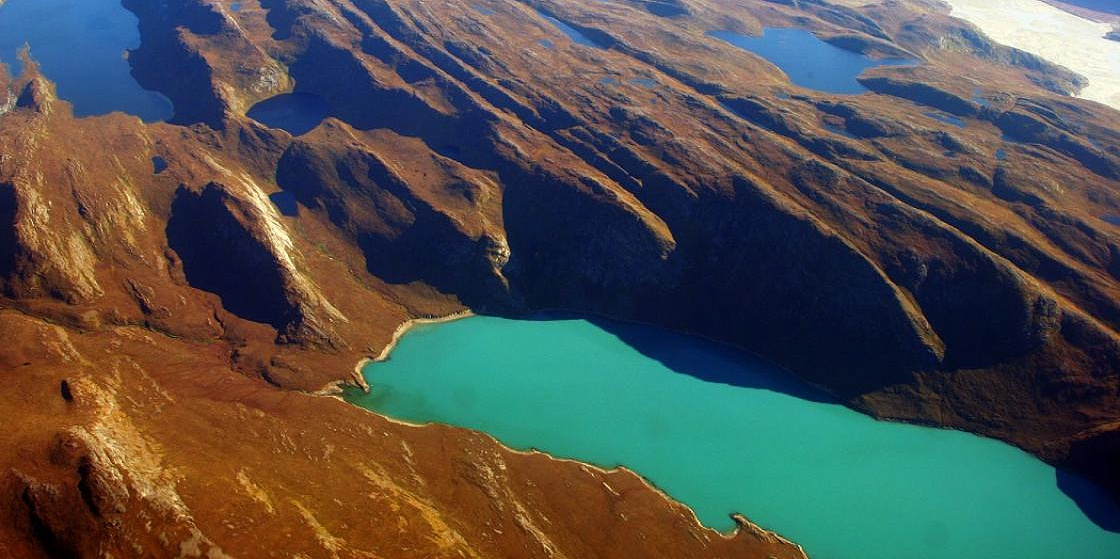
Photo: Kantor Vadim/GeoPhoto.ru
Challenges and Prospects of Geological Exploration in Russia Explained by Federal Official
Exploration and mining for natural resources is one of the top sectors of both the Russian economy and that of the Russian Arctic. In this light, the importance of coordinated and systematic efforts to explore new mineral deposits and ensure reserve replacement can hardly be overestimated. In his recent interview, Yevgeny Petrov, Acting Manager of the Federal Agency for Mineral Resources, talked about prospects and challenges facing Russia’s prospectors and geological survey services. Here are the key points he made.
- Russia retains a huge potential in terms of discovery of large deposits. In recent years only, major deposits of oil were discovered both on the shelf and on the mainland, including Triton and Neptune (Okhotsk Sea), Pobeda (Kara Sea) and Zapadno-Irkinskoye (Krasnoyarsk Kray). In the Kara Sea, the following giant gas fields were found: Marshal Zhukov, Marshal Rokossowski and 75 Let Pobedy. With advanced technologies such as enhanced oil recovery techniques being implemented, drilling for hard oil discovered in past decades becomes economic, which opens the way for further exploration.
- The Arctic and its reserves are something to be inherited by next generations. At present, Russia is taking steps to secure control over a vast continental shelf area via the UN mechanisms. One can be certain that this country will profit immensely from this in the future.
- Russian prospectors are introducing cutting-edge techniques providing for more mobility, energy efficiency and scalability such as drones (used for geological mapping and many other tasks) and eco-friendly seismic technologies. All that helps to both decrease the environmental impact of prospecting and improve its cost effectiveness.
- Under the recently announced set of strategic initiatives, in the next three years, 12 billion rubles will be invested into exploration, 15 billion rubles into modernizing the prospecting service sector and 4 billion rubles into research projects regarding the Arctic, the Antarctic and the World Ocean. It will be a major step forward for Russia’s exploration sector.
- The decision to demonopolize the geological exploration sector proved to be a correct one, with the market boosting due to increased competition. The latter helped to both considerably reduce exploration-related expenses (in 2020, the government spent 20% less on prospecting) and delays, which used to be common in this industry.
- Many companies show interest in launching prospecting businesses of their own or in cooperation with Rosgeologia, the once monopoly provider of survey services. The Agency intends to open this market for drilling and mining companies, defense corporations, research centers, development funds etc. Oil and gas companies are interested in being directly involved in the exploration effort in such Arctic regions as Yamal, Taimyr and Yakutia.
- The geological exploration of the Russian Arctic shelf is underway, with both oil and gas companies and the Agency working to this end. However, one should not expect the development of the shelf to start in the near future, as, by all standards, it is a tough financial and technological challenge.
26 October 2021




